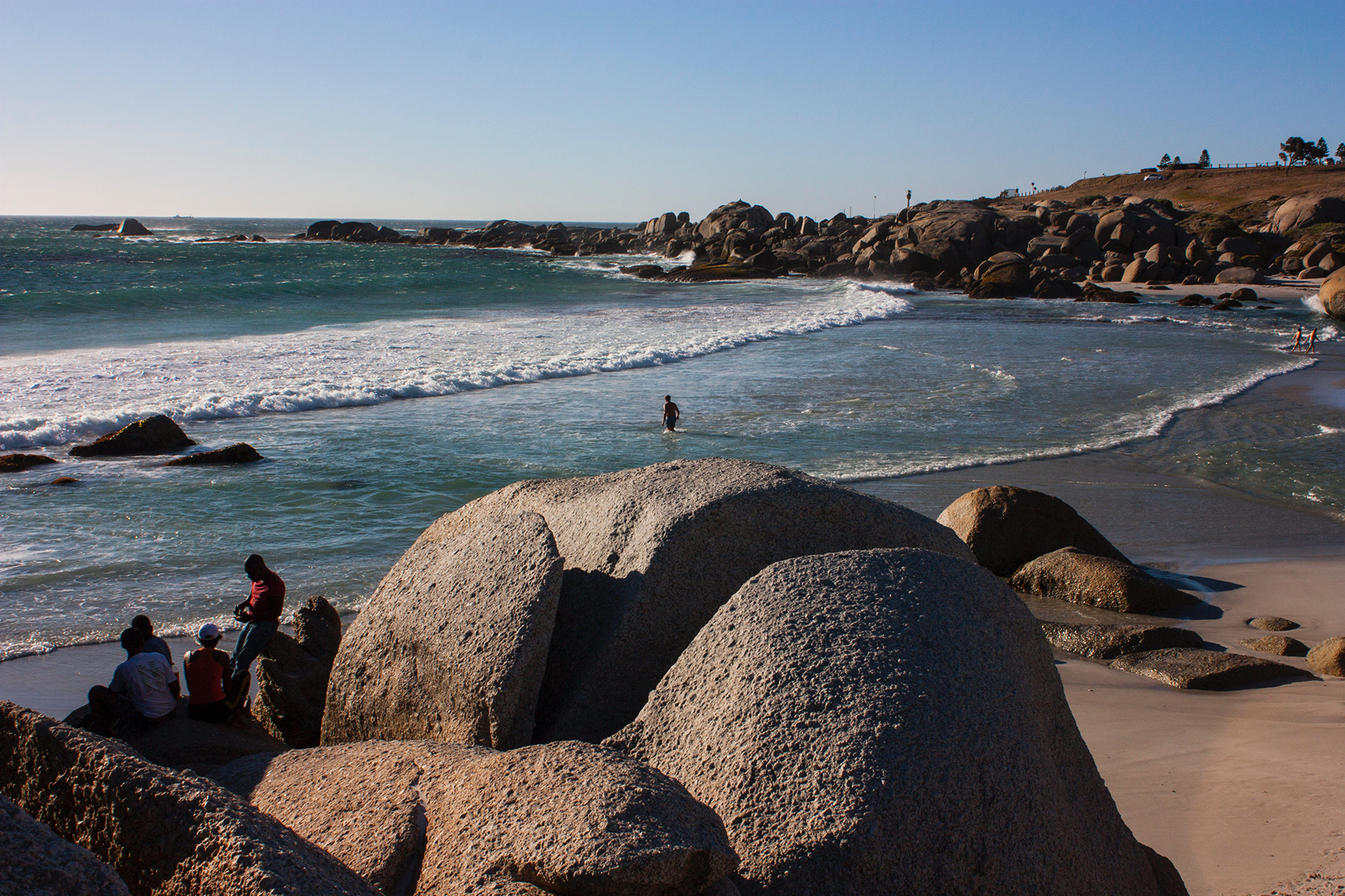First published by GroundUp
Cape Town’s beaches are occasionally contaminated by faecal bacteria such as E.coli, but of greater concern are the pharmaceuticals and chemicals from household cleaning products which are dumped with the sewage into our coastal waters – and for which authorities do not test.
Cape Town flushes several million litres of essentially raw sewage into the sea every day through the city’s marine outfalls at Greenpoint, Camps Bay, and Hout Bay. Within this effluent are persistent organic compounds such as antibiotics, analgesics, blood lipid regulators, natural and synthetic hormones, beta-blockers, anti-diabetic and blood pressure drugs, as well as chemicals from soaps, detergents, disinfectants, perfumes, dental care products, skin and hair products.
Scientists have found a cocktail of 15 pharmacological compounds in limpets, mussels, sea urchins, starfish, sea snails, and seaweed collected from rockpools in Granger Bay. These are just the compounds they tested for – there are hundreds more – and can only have entered seawater via faecal contamination from the marine outfalls.
The City of Cape Town takes water samples from our beaches every two weeks — although the results for the last two years have not been released — but only tests for bacteria such as E.coli and Enterococcus. It does not test for these pharmacological compounds, as it is not mandated to do so by national legislation. But the study, initially undertaken to check the quality of water for desalination purposes, reveals these compounds are building up in the shellfish and seaweed on our shores.
“These compounds could cause far more harm than the sewage itself, such as feminisation or sterility of fish populations, cancer, growth deformities, foetal abnormalities and hormonal disturbances. These compounds may bioaccumulate in marine organisms, and thus move up the food chain to humans who eat seafood, ultimately causing the same effects”, states a scientific paper published in 2017 by Leslie Petrik, Lesley Green, Adeola P Abegunde, Melissa Zackon, Cecilia Y Sanusi, and Jo Barnes.
The scientific paper — Desalination and seawater quality at Green Point, Cape Town: A study on the effects of marine sewage outfalls — revealed that levels of these compounds in 2017 were significantly higher than the levels in samples tested two years earlier, suggesting pollutants are being pumped into our water faster than the organisms can excrete them.
Senior Professor in chemistry at UWC Leslie Petrik, said the accumulation of these compounds in limpets, for instances, impairs their ability to cling to rocks, which results in them getting washed off and dying. Mussels, which many Capetonians enjoy collecting and cooking, are the filters of the sea and “love mopping up these compounds”.
Petrik said the problem is not confined to Cape Town. “It’s every coastal city’s problem.”
She said there is “absolutely no doubt” these persistent contaminants come from sewage outfalls, yet the city “won’t accept that their marine outfalls are affecting the marine environment”.
She said higher levels of industrial compounds were found in the waters around the Greenpoint outfall, while Camps Bay residents flushed away a lot of pharmaceuticals and painkillers.
City Mayco Member for Water and Waste Services, Xanthea Limberg, said according to the World Health Organisation, there was no acute health risk posed by accumulated traces of common chemical compounds in our environment. However, Limberg said, the city was “keeping abreast of developments in this field”.
She said the city was mandated to treat wastewater to the standards issued by the relevant national department and the removal of what is known as Chemicals of Emerging Concern (CECs) are not addressed.
“No full-scale municipal wastewater treatment plant in South Africa or anywhere else in the world that we are aware of is currently equipped to remove CECs from the water they treat.”
She said the USA and the European Union were promulgating legislation for a limited number of CECs, but neither process had been completed and research into effective full-scale treatment processes for the removal of CECs was still ongoing.
“Therefore, the CEC traces found around Cape Town are not an indication of poor sewage treatment and were actually lower than those found along the coastlines of most northern hemisphere countries.”
Petrik said pumping sewage out to sea was approved when volumes were relatively small and it was assumed that “the solution to pollution is dilution”. The sewage outfalls were also built at a time when the variety and volume of manufactured chemicals and pharmacological compounds within sewage was far lower.
She said the city needed to start investigating new sewage treatment technologies, but residents should also take responsibility for what they flush down toilets and drains. Rather than using products full of chemicals, residents should opt for environmentally friendly products and use bleach, which breaks down into its constituent salts, for disinfection, rather than antiseptics. DM
This article was produced for GroundUp by West Cape News




